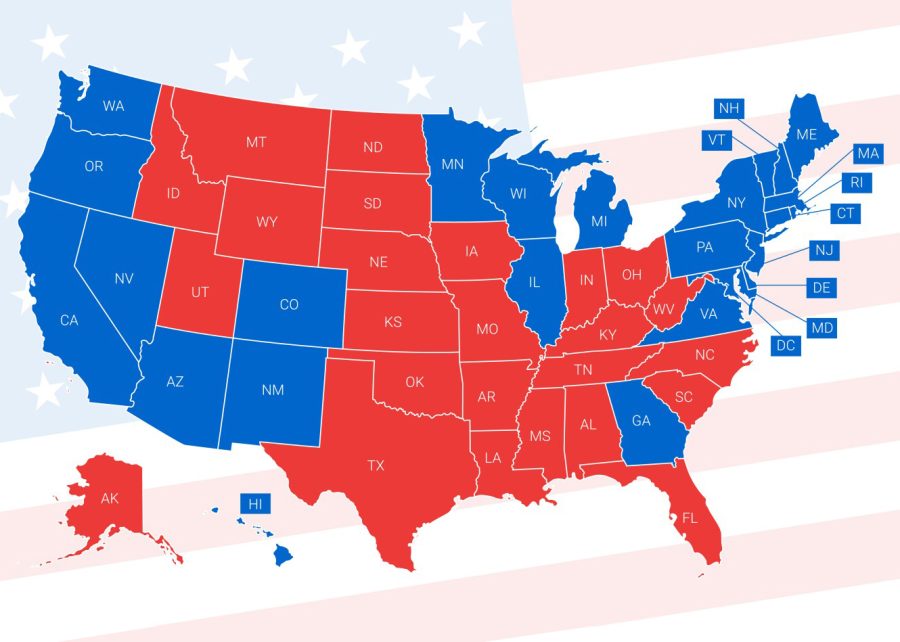Banish Binary Beliefs
Across the United States, extremism and a decline in public trust of political institutions have led many to believe that the government is inneffective and corrupted. This trend must be combated to preserve the country.
In 2021, there were 9,625 threats made against members of Congress, a more than two-fold increase from 2017, according to sources at the Capitol Police. Some of those threats came in the form of physical violence, including the attack on House Speaker Nancy Pelosi’s husband, Paul Pelosi. The recurring pattern of American extremism and polarization in politics has distracted the public eye from advancing bipartisan public policy on greater issues.
A study by The Hill finds “Distrust and pessimism about American democracy have become pervasive problems, and are no longer confined to the extreme fringes of the two political parties. Indeed, more than one-half (51 percent) of voters say that the U.S. democracy is at risk of extinction […] Just one-quarter of voters believe that our democracy is secured for future generations (26 percent).”
Dissatisfaction and distrust collectively make it easier for opportunistic politicians to garner large swathes of support — not by promoting tangible solutions, but rather by attacking their opponents.
John Cannon (IV) expands upon this phenomenon, saying, “The two-party system and overly anti-establishment rhetoric are two of the biggest causes behind American extremism. It’s basically the establishment and the guys who are extremely anti-establishment.”
The debilitating cycle of distrust hinders the government’s ability to execute proposals and public policy, which in turn results in even less trust. Such a cycle can only be broken through major political reforms and healthy negotiation.
When asked about potential solutions for this self-defeating cycle, Cannon states, “I’d rather there be more political parties, with coalitions that can form between them. Taking down the other party is easier than propping up your own.” Indeed, vigorous debate, rather than unsubstantiated rhetoric, is a crucial component of creating a healthy democracy and minimizing extremism in the U.S.
In addition, modern politics is so polarized that many political campaigns have come to focus on the rejection of the opposition, more so than focusing on actual policy and finding common ground solutions. Smear tactics have manifested themselves in aggressive campaign advertisements and wildly inaccurate conspiracy theories aimed to villainize the other side.
It is sickening that these tactics for voter support have become the norm. Politicians are no longer motivated by ideas, but by fantasies. The demonization of the opponent and an inability to understand those with differing opinions have severely damaged the effectiveness of American democracy.
The toxic nature of modern politics has spurred feelings of distrust in the U.S. Boston Latin School science teacher Mr. Scott Balicki states, “A lot of this mistrust does have seeds in the perception of being marginalized or ignored.” In other words, everyone on one political side is being marginalized and ignored by the opposing side.
Politicians have debated taking responsibility when it comes to acts of political violence. The attack on Paul Pelosi reignited this conversation as Republicans argue that free speech justifies the sharing of conspiracy theories and other rhetoric that have inspired political violence.
The toxicity present in politics, however, goes beyond the exercise of the First Amendment. It expands to include the state of governance in the U.S. and the negative turn it has taken in recent decades. Polarization, the dissatisfaction of citizens and a loss of American values all must be addressed to reverse people’s declining faith in the country.
The main takeaway from this world of heated discourse and extremism is that genuine debate and critical thinking are key components in the roles of citizens. Seeking out the nuance between what may appear “right” or “wrong” has become increasingly essential for developing viable solutions and de-escalation in the current polarized nation.







